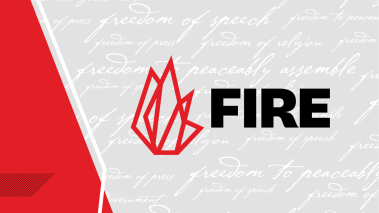Table of Contents
Statement on Florida HB 757 and SB 1780

Florida House Bill 757, introduced by state Rep. Alex Andrade and voted out of committee this week, violates the First Amendment, encourages self-censorship by media outlets, and invites frivolous lawsuits to silence those who report on or criticize public figures.
FIRE opposes this legislation and urges Florida state legislators to reject it.
HB 757 and its Senate companion, Senate Bill 1780, are a direct attack on New York Times Co. v. Sullivan, the landmark Supreme Court decision holding that public officials — and now all public figures — who bring defamation claims must prove “actual malice,” meaning the person they’re suing either knew their statement was false or spoke with reckless disregard for its truth. The Sullivan decision protects the rights of everyone to speak on the issues of the day without fear that a simple mistake will leave them liable for defamation.
HB 757 and SB 1780 attack Sullivan by providing that actual malice can simply be presumed if a news story contains an inaccurate statement for which the author relied in any way on an anonymous source. This is an unconstitutional attempt to undermine Sullivan by eroding its requirement that public figures prove — not simply presume — actual malice in order to win defamation claims. This lower standard would violate the First Amendment and chill vital investigative reporting about public figures.
FIRE urges legislators to oppose HB 757 and SB 1780.
HB 757 and SB 1780 also undermine Florida’s anti-SLAPP protections by making it more costly for Floridians to defend themselves against frivolous defamation lawsuits brought against them for simply exercising their First Amendment rights. The bills enable a party to require a judge to hold a hearing and decide within 60 days whether the statement at issue in a defamation lawsuit is opinion or fact as well as whether it is true or false. Even if their claim is ultimately meritless, this hearing gives wealthier plaintiffs a tool to run up their SLAPP target’s legal bills and pressure them to settle rather than defend their rights.
HB 757 and SB 1780 additionally create powerful incentives for publishers to vanish entire articles from the internet. The proposed language erodes basic legal protections for online publishers if they receive notice that a statement they published was found in some judicial proceeding to be false — even if the publisher has reason to believe the court’s ruling is erroneous. When this occurs, the statute of limitations for defamation claims would effectively be suspended, and the fair reporting privilege — which protects people from liability when reporting statements from official government sources — would be eliminated if the article remains online and unrevised.
Publishers can regain these protections only if they issue a correction or take “steps,” undefined in the bill, to have the article and any “related reports” removed from the internet — often an impossibility. As courts are not always accurate in their rulings on factual questions, this section will encourage publishers to take down or inaccurately “correct” content that may turn out to be true.
FIRE urges legislators to oppose HB 757 and SB 1780.
Recent Articles
FIRE’s award-winning Newsdesk covers the free speech news you need to stay informed.

Texas tramples First Amendment rights with police crackdown of pro-Palestinian protests

Here’s what students need to know about protesting on campus right now

Kansas takes a stand for intellectual freedom


